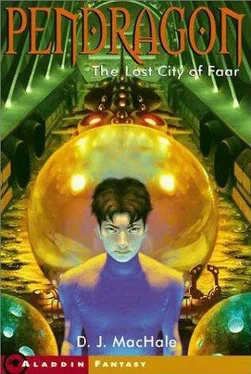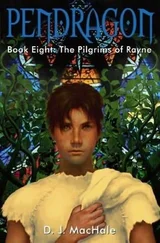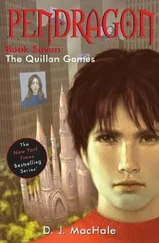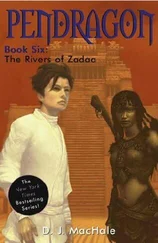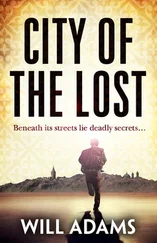D. MacHale - The Lost City of Faar
Здесь есть возможность читать онлайн «D. MacHale - The Lost City of Faar» весь текст электронной книги совершенно бесплатно (целиком полную версию без сокращений). В некоторых случаях можно слушать аудио, скачать через торрент в формате fb2 и присутствует краткое содержание. Жанр: Фантастика и фэнтези, на английском языке. Описание произведения, (предисловие) а так же отзывы посетителей доступны на портале библиотеки ЛибКат.
- Название:The Lost City of Faar
- Автор:
- Жанр:
- Год:неизвестен
- ISBN:нет данных
- Рейтинг книги:4 / 5. Голосов: 1
-
Избранное:Добавить в избранное
- Отзывы:
-
Ваша оценка:
- 80
- 1
- 2
- 3
- 4
- 5
The Lost City of Faar: краткое содержание, описание и аннотация
Предлагаем к чтению аннотацию, описание, краткое содержание или предисловие (зависит от того, что написал сам автор книги «The Lost City of Faar»). Если вы не нашли необходимую информацию о книге — напишите в комментариях, мы постараемся отыскать её.
The Lost City of Faar — читать онлайн бесплатно полную книгу (весь текст) целиком
Ниже представлен текст книги, разбитый по страницам. Система сохранения места последней прочитанной страницы, позволяет с удобством читать онлайн бесплатно книгу «The Lost City of Faar», без необходимости каждый раз заново искать на чём Вы остановились. Поставьте закладку, и сможете в любой момент перейти на страницу, на которой закончили чтение.
Интервал:
Закладка:
He was the kind of guy who knew the right people to go to in order to get things done. He got Uncle Press and me set up in a small house near his. It was on the side of Grallion where the temporary workers lived, and since we had become temporary workers, we were right at home. The place was small, but comfortable enough. There were bunk beds (I got the top) and a small kitchen and some simple furniture. The best part about it though, was that the back window looked right out on the ocean. How great was that?
He got us jobs working on the farm. I was afraid this was going to be torture, but it wasn’t. Not all of it, anyway. At home on Second Earth the big farms employ pickers who show up during harvest time, pick whatever needs to be picked, and move on to another. That seemed like pretty hard work, and not all that rewarding.
But that’s not how it worked on Grallion. Rather than simply going out to pick whatever is ripe, the farm workers on Grallion are assigned to a quadrant. That’s an area roughly the size of an acre. The workers are called “vators” and they have the responsibility of taking complete care of their quadrant, from feeding the plants to pruning, and yes, to picking the fruit. But the vators’ responsibility doesn’t end with the picking. They follow their crops all the way through the washing, sorting, and packing process right up until their crops are shipped out. It’s very cool and gives you a real sense of accomplishment. I guess it’s the difference between working on an auto assembly line where your whole job is to put the wheels on cars as they pass by you, versus staying with the same car from the very beginning and proudly watching it roll off the line.
Now, you may be thinking that I have no business running a farm, and you’d be right. Before coming to Grallion I didn’t know the difference between weeds and worms. I didn’t think Uncle Press did either. But it didn’t matter because we weren’t the only vators assigned to our quadrant. There were six other workers with us and each was pretty experienced. They showed us how to check plants for signs of disease and how to treat them with natural compounds brought up from the ocean floor. All the fertilizer was natural too. It seemed like even though Cloral was covered with water, much of what they used on the surface was brought up from below and processed for use on the habitats.
The fruit grew quickly on Grallion, so there was a harvest of some sort every few days. You would think this was the hardest part, and maybe it was, but it wasn’t all that bad. It wasn’t like we had to go out into the fields with baskets and fill them up with heavy fruit and lug them back to a central area or anything. It was way more civilized than that. Beneath every narrow walking path was an underground conveyor belt. All we had to do was pick the fruit and drop it on the ground, then lift the doors and drop the fruit down below. The conveyor belt would take it all to a central area where another of the vators from our quadrant would be waiting to wash, sort, and pack them up. It was all so simple.
Uncle Press and I went below several times to receive the harvested fruit from our quadrant and ensure that it was all cleaned and packed properly. We then used a forklift to bring the boxes of fruit all the way forward to the loading docks.
This is where we saw Spader at work. It was a busy place. There were all sorts of transport boats coming and going, bringing shipments of fresh fruits and vegetables back to their habitats. The habitats themselves were never allowed closer than a half mile to Grallion. That would have been dangerous. Instead they would send in small boats that would safely enter the docking area. Spader’s job was that of traffic cop. He’d travel just in front of the incoming boats on his skimmer, calling back instructions to get them safely docked. He’d then jump on the dock, tie up the boat and signal the dockworkers to begin the loading process. Once a cargo boat was loaded, he’d reverse the process and guide the boats safely out of the docking area and send them on their way back to their habitats.
But that’s not all Spader did. He was also on the pilot’s crew. The pilot was like the captain of a ship. He was in charge of the vessel and its safety. Spader was still kind of a junior crew member, so most of his duties were of the lookout variety. At any given time there were ten lookouts stationed around the habitat to warn of any impending problems. It was a boring job, but an important one. It was probably pretty boring being a lookout on theTitanic, too. For a while, anyway. That will give you an idea of how important that job was.
I can guess what you’re thinking. I made working on Grallion sound as if it were actually fun. Well, fun isn’t exactly the word. It was work and some of it was hard, but I didn’t mind it. I felt like I was an important part in keeping the wheels turning.
No, working the farm wasn’t exactly fun, but there were plenty of other things to do that weredefinitelyfun.
Spader took me on adventures. You know how much I like to dive, and on Grallion, hanging outbelowthe water was a pretty normal thing. I already described how easy it was to swim underwater using the air globes. These gizmos made swimming underwater almost as natural as walking on the deck of Grallion. Actually, it was better. This is the closest to flying that I think a human will ever come. Spader and I would have races underneath Grallion. I really got the knack of using the water sleds. I found that by subtly shifting my body position, I could turn faster and move quicker. It was all about becoming aqua-dynamic. It didn’t take long before I was almost as fast as Spader.
Spader took me fishing, too. I’m not much of a hunter, so he did most of the spearing. I acted more like a scout who found the larger fish and alerted Spader. I guess that makes me kind of like a hunting dog. Oh, well, that was my choice. But I have to tell you, I didn’t mind eating the fish afterward. (Spader was a pretty decent cook, too.)
At first I was nervous about quigs, but Spader assured me that the sharks never came near Grallion. I knew that was because quigs only patrolled near gates and flumes, but I wasn’t about to tell Spader that — yet.
Spader also showed me something that was really bizarre. Near where Grallion was anchored was another farm. An underwater farm! The people of Grallion didn’t just farm on the habitat, they had crops growing on the ocean floor, too! This submerged farm had its own vators who tended the place wearing air globes. They grew everything from fruit, to long leafy vines that were cut at the base and brought up whole. Spader explained to me that these underwater farms were even more important to Cloral than farms like Grallion. He said there were farms all over the planet on the ocean’s floor that had fed the Clorans for centuries. Growing food on habitats was a relatively new practice. The most important farms were underwater.
There was another underwater sport that Spader introduced me to, and once I got the guts to try it, I was hooked. Spader called it spinney-do and this is how it worked: A spinney was a kind of fish that traveled in small schools of maybe four or five and they looked like really skinny dolphins. I’m serious. Imagine a regular old dolphin, then imagine it being only about six inches in diameter and you’d have a spinney. At the backs of their heads they had these bizarro ridges. I had no idea what the spinneys needed them for, but they were crucial to playing spinney-do.
Spader motioned for me to be quiet and to watch. He then left me and swam cautiously up behind the spinneys, who were busily feeding on some kelp. They had no clue that he was there. They may have looked like skinny dolphins, but they were nowhere near as smart. Spader was able to sneak up right behind them. With one quick move, he jumped on the back of one and grabbed the ridge behind its head! Well, the spinney didn’t like that at all and it started to bloat! It was like one of those puffer fishes that get all fat when you touch them. Only the spinney was so big, when it puffed up it gothugeIt was strong, too! It had suddenly transformed from this sleepy, dopey fish into a water-going bucking bronco! Spader held on to the back ridge with both hands and wrapped his legs around its body as the fish started thrashing and bucking.
Читать дальшеИнтервал:
Закладка:
Похожие книги на «The Lost City of Faar»
Представляем Вашему вниманию похожие книги на «The Lost City of Faar» списком для выбора. Мы отобрали схожую по названию и смыслу литературу в надежде предоставить читателям больше вариантов отыскать новые, интересные, ещё непрочитанные произведения.
Обсуждение, отзывы о книге «The Lost City of Faar» и просто собственные мнения читателей. Оставьте ваши комментарии, напишите, что Вы думаете о произведении, его смысле или главных героях. Укажите что конкретно понравилось, а что нет, и почему Вы так считаете.
